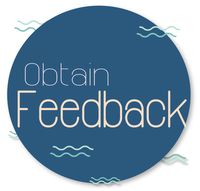Obtain Summative Feedback from Students
 |
Soon you will find further content on the topic "Obtain Feedback" in the area of e-learning in university teaching. This page is constantly growing with the project and is regularly filled with new content. Unless otherwise stated, the following sources are valid: e-teaching.org • ilias.uni-giessen.de/ilias |
|---|---|
E-Evaluation at the JLU |
|
|
LENA (Lehrevaluations-Navigation) offers you as a teacher suggestions for possible changes on your offered courses or your teaching, which are specifically adapted to the individual aspects of teaching evaluation with the MoGLi questionnaire. Source: Professur für Hochschuldidaktik und Evaluation der JLU (2015-2017) URL: https://surveys.hrz.uni-giessen.de/LENA/index.php/254969/newtest/Y/lang/delena |
|
| LENA is online: New online tool to support your teaching. How can you transform the results of your course evaluation (LVE) into concrete consequences for your teaching? The online tool LENA, now available to all JLU teachers, helps you to answer this question as simply, purposefully, individually and scientifically as possible. Are you interested? Then follow http://www.inst.uni-giessen.de/lena | |
|
MoGLi (Modulares Gießener verhaltensbasiertes Lehrveranstaltungsrückmeldungsinstrument) is a behavior-based instrument for course evaluation. If you would like to evaluate your course, you are in the right place at the JLU Teaching Evaluation Service Centre. Source: Servicestelle Lehrevaluation JLU (2018) URL: https://www.uni-giessen.de/org/admin/stab/stl/servicestelle/infomogli |
|
|
Self-evaluation of teaching is a useful supplement to the central services offered by the "Sevicestelle Lehrevaluation" centre. In addition to or alternating to MoGLi, the service centre recommends the use of its own feedback and evaluation procedures for your teaching. Source: Servicestelle Lehrevaluation JLU (2018) URL: https://www.uni-giessen.de/org/admin/stab/stl/servicestelle/selbstevaluation |
|
 |
Peer review is a procedure in which the results of a research project are commented and evaluated by one or more experts in the relevant field. The research results are usually available in the form of an article. Peer reviews are usually used before the publication of a scientific article for journals or conferences and decide whether the article is going to be published or not. (Source: https://ilias.uni-giessen.de/ilias/goto.php?target=cat_39996 (Accessed: 10.22.2019 : translated by Lehre 4.0 team)) |
